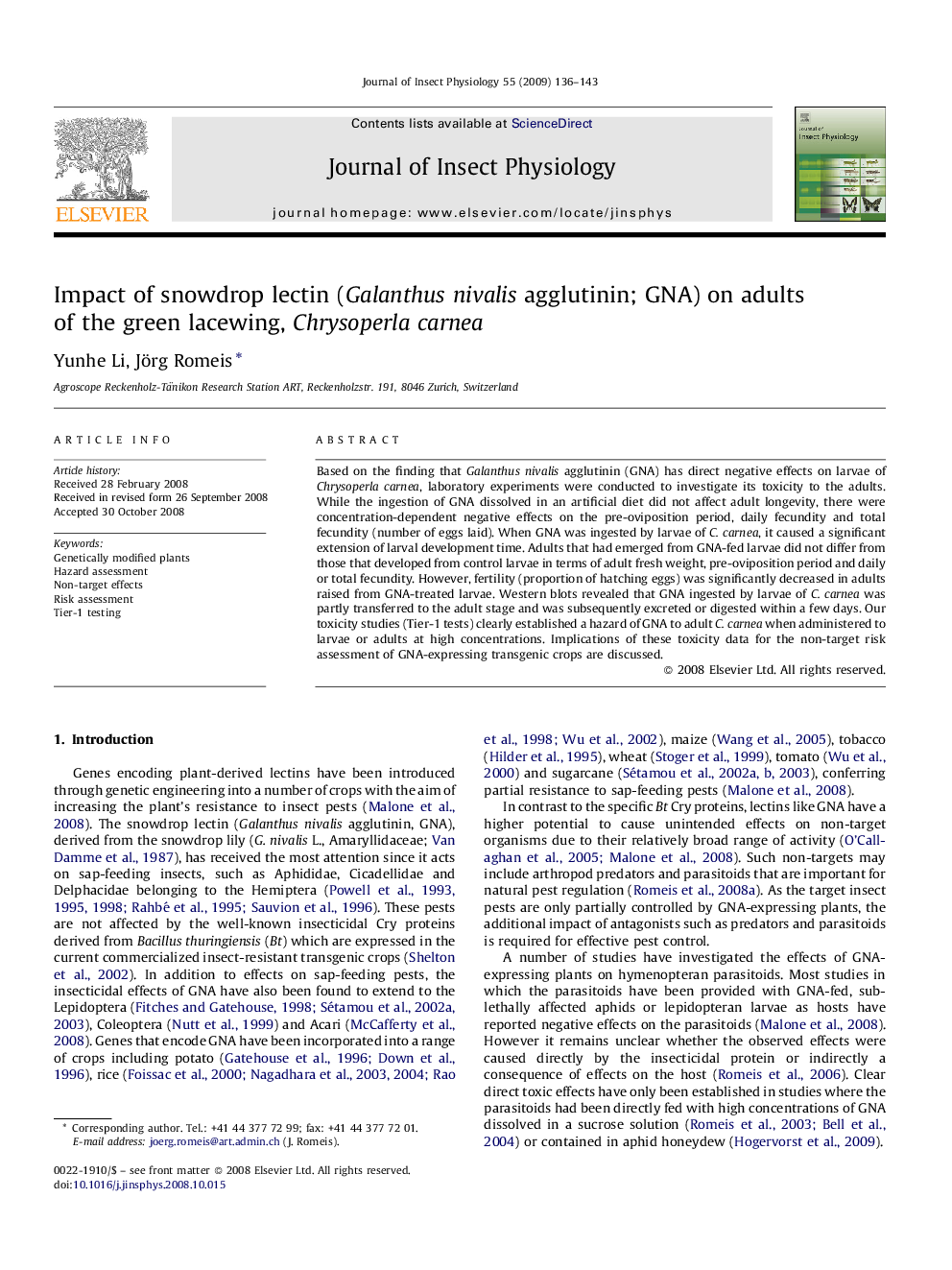| Article ID | Journal | Published Year | Pages | File Type |
|---|---|---|---|---|
| 2841217 | Journal of Insect Physiology | 2009 | 8 Pages |
Based on the finding that Galanthus nivalis agglutinin (GNA) has direct negative effects on larvae of Chrysoperla carnea, laboratory experiments were conducted to investigate its toxicity to the adults. While the ingestion of GNA dissolved in an artificial diet did not affect adult longevity, there were concentration-dependent negative effects on the pre-oviposition period, daily fecundity and total fecundity (number of eggs laid). When GNA was ingested by larvae of C. carnea, it caused a significant extension of larval development time. Adults that had emerged from GNA-fed larvae did not differ from those that developed from control larvae in terms of adult fresh weight, pre-oviposition period and daily or total fecundity. However, fertility (proportion of hatching eggs) was significantly decreased in adults raised from GNA-treated larvae. Western blots revealed that GNA ingested by larvae of C. carnea was partly transferred to the adult stage and was subsequently excreted or digested within a few days. Our toxicity studies (Tier-1 tests) clearly established a hazard of GNA to adult C. carnea when administered to larvae or adults at high concentrations. Implications of these toxicity data for the non-target risk assessment of GNA-expressing transgenic crops are discussed.
